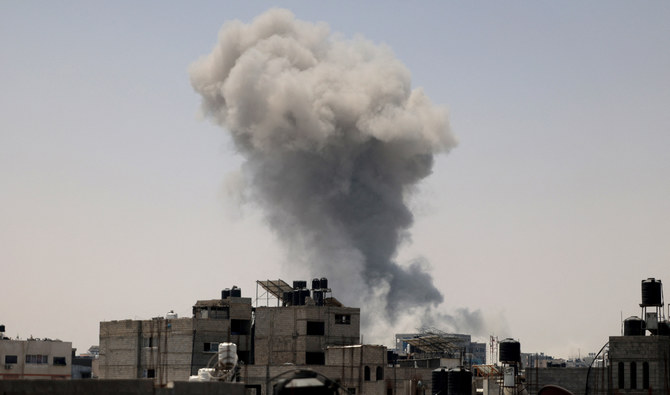JERUSALEM: Israeli Prime Minister Benjamin Netanyahu on Friday ordered his spy chief to Qatar for talks with mediators on a Gaza war ceasefire that could see Hamas militants release hostages seized in the October 7 attacks, sources said.
Amidst new optimism over a possible breakthrough, Netanyahu called a meeting of his security cabinet for late Thursday to discuss new Hamas proposals sent through Qatari and Egyptian mediators, reports said.
Israel believes dozens of hostages are still alive in Gaza and with the war taking an increasing human toll in the devastated Palestinian territory both sides face mounting international pressure to reach a deal.
Mossad chief David Barnea was to lead an Israeli delegation to Qatar that has spent months trying to bring the enemies to the negotiating table, according to a source with knowledge of the talks. He was expected in Doha on Friday and was to meet the Gulf state’s Prime Minister Mohammed bin Abdulrahman Al Thani.
Barnea’s delegation “is traveling to Qatar in a continuation of talks on a ceasefire and hostage deal.
“He will meet with the Qatari prime minister for discussions aiming to bring the parties closer to a deal in Gaza,” the source said on condition of anonymity given the sensitivity of talks.
US President Joe Biden praised the decision to send a delegation in a telephone conversation with Netanyahu, the White House said. Biden welcomed the decision to have Israeli negotiators “engage” with mediators in a bid “to close out the deal.”
The United States believes Israel and Hamas have a “pretty significant opening” to reach an agreement on a ceasefire and the release of hostages, a senior US official said.
The official, who spoke on condition of anonymity, said the Hamas proposal “moves the process forward and may provide the basis for closing the deal,” while stressing it does not mean an agreement was likely in coming days, and that “significant work” remains.
Hamas had demanded an end to the war and an Israeli withdrawal as a prelude to any hostage deal.
Israel has countered that there can be no end to the war without the release of hostages. Netanyahu has also repeatedly vowed that the Gaza campaign will not end until Hamas’s military and government capabilities have been destroyed.
Hamas said late Wednesday that it had sent new “ideas” for a potential deal and Netanyahu’s office said the government was “evaluating” them.
Qatar, Egypt and the United States have been mediating between the two sides and sources close to their efforts said they have been pushing for several weeks to bridge the “gaps” between the foes.
Biden announced a pathway to a truce deal in May which he said had been proposed by Israel. This included a six-week truce to allow for talks, the release of hostages and eventually a program to rebuild devastated Gaza.
“There are important developments in the latest proposals with positive options for both sides,” said a diplomat briefed on the latest proposals. “This time the Americans are very serious about this.”
The war started with the October 7 attack on southern Israel that resulted in the deaths of 1,195 people, mostly civilians, according to an AFP tally based on Israeli figures.
Hamas militants also seized 251 hostages, 116 of whom remain in Gaza including 42 the army says are dead.
Israel’s retaliatory offensive has killed at least 38,011 people, also mostly civilians, according to figures from the Hamas-run territory’s health ministry.


























